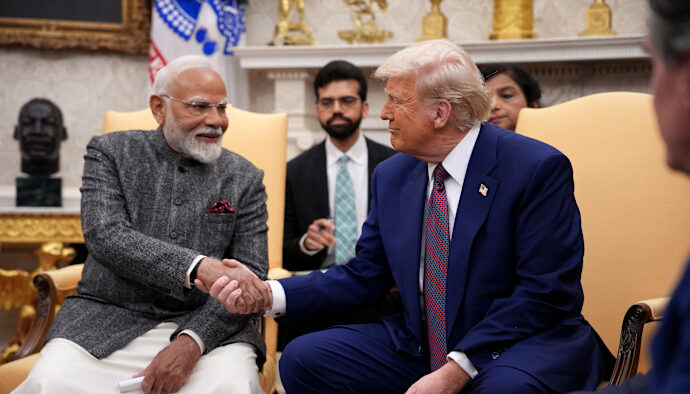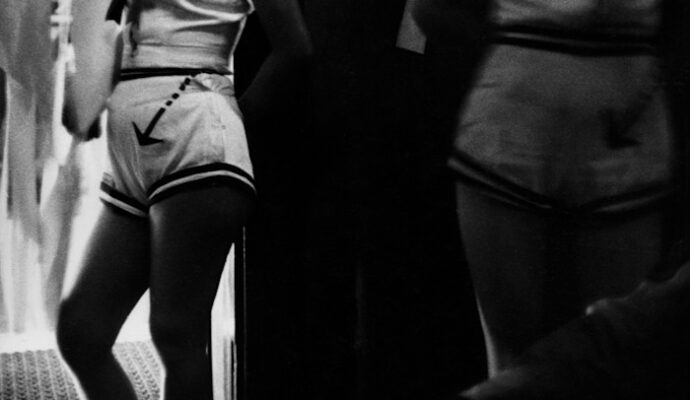Unlock the Editor’s Digest for free
Roula Khalaf, Editor of the FT, selects her favourite stories in this weekly newsletter.
Seven & i shareholders have backed its new chief executive as the 7-Eleven store owner faces a record-breaking $50bn takeover offer and tries to prove to increasingly divided investors that the Japanese retailer can stand alone.
At the company’s annual meeting on Tuesday, shareholders voted through all board members and proposals, including the nomination of Stephen Dacus as a director. A failure to win convincingly could have thrown into jeopardy Dacus’s ascendancy to the CEO role, which will be confirmed by the new board.
The show of support comes as Dacus walks a fine line of trying to raise Seven & i’s valuation while keeping the door open to Canada’s Alimentation Couche-Tard and what would be the biggest foreign takeover of a Japanese company.
Akira Fukuchi, a 77-year-old who has held Seven & i shares for more than 20 years, said on the sidelines of the meeting that the company needed to hold out for a higher bid price and that it was in this situation due to “sloppy management”, which he was not yet convinced Dacus could rectify.
Another investor who has held Seven & i shares for two years and wished to remain anonymous said he was “despondent” at “ineffective” management and was supportive of the Couche-Tard takeover proposal.
That was echoed by Minoru Masuda, a 66-year-old former 7-Eleven employee, who said the need for the company to “globalise” would be better served by Couche-Tard.
11%
The decline in Seven & i’s share price so far this year
Since announcing in March that Dacus would take the top job, the company has agreed to sell its general merchandise stores in Japan to private equity, launched large-scale share buybacks, unveiled plans to list its US business and vowed to revamp 7-Eleven stores in Japan with fresh food offerings.
The moves have failed to boost the company’s share price. Instead, it has fallen more than 11 per cent this year, and some shareholders at the meeting expressed frustration.
However, the vote on Tuesday appeared to signal that investors were willing to give Dacus time to prove that his pledges to counter the takeover bid from the Canadian operator of Circle K stores would create more value.
Masahiko Shuchida, who invests for Osaka-based Life Up and has held Seven shares for 40 years, said on the sidelines that he opposed the takeover for cultural reasons, citing a distinctive Japanese “duty, loyalty and sentimentality” management style. It was not a matter of price, he added.
“We should spread the Japanese convenience store around the world. But if it’s a takeover, then that’s going to be hard for us,” he said.
However, people familiar with the initial vote count said that Junro Ito, a member of Seven & i’s founding family, who failed in his attempts to muster a rival $58bn take-private bid, is expected to receive a lower vote for his appointment as executive chair. The vote counts will not be released until later this week.
Several people familiar with Couche-Tard said the company was frustrated that no shareholders lodged proposals ahead of the meeting that provided a greater challenge to management.
One person familiar with Couche-Tard’s thinking said that what happens next in the deal, assuming it continues to be rejected by Seven & i, would be determined by any shareholder agitation in the coming months and whether they were happy to give Dacus extended time to turn around the business and raise the share price.
The takeover attempt by Couche-Tard, owner of the Circle K convenience store chain, was made public last year but has been consistently rebuffed by Seven & i. It has cited the difficulties of competition issues in the US, where a combined group would have significant market share.
The two groups are working together to identify a potential buyer for the US stores that would need to be sold to address competition concerns. Both sides expect a private equity buyer to emerge as the best candidate, but there are disagreements about how viable such an option would be in the eyes of the US regulator.
In a significant step earlier this month, the two groups also signed a non-disclosure agreement to “progress transaction discussions, facilitate due diligence, and collaborate on plans to engage with regulators”.


